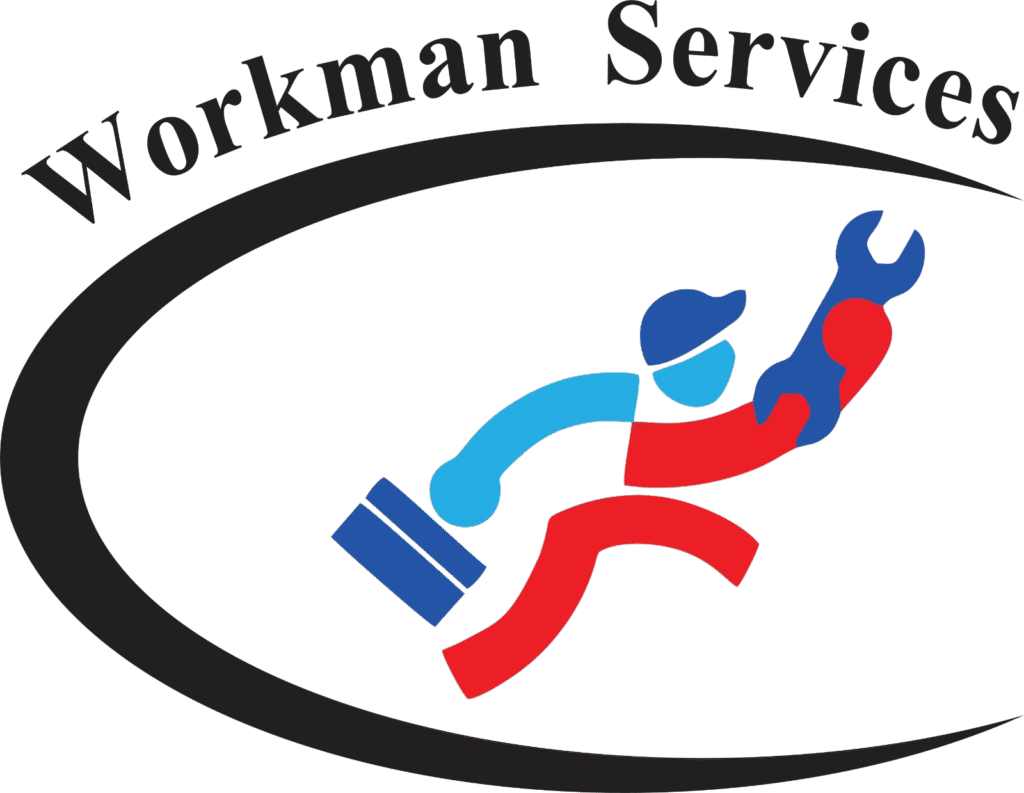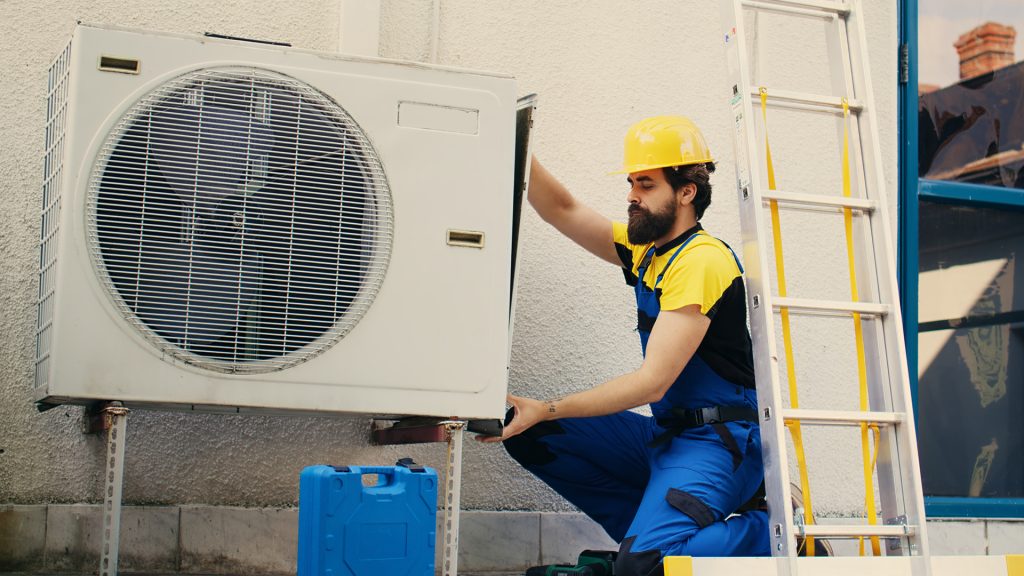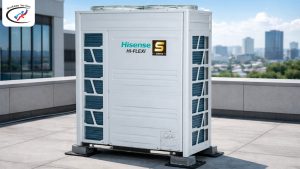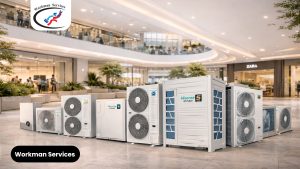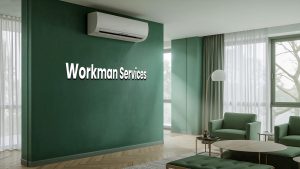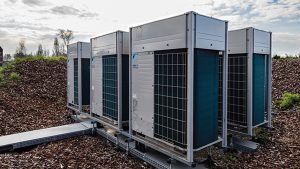Table of Contents
ToggleComplete Guide to Air Conditioning Solutions for Optimal Home Comfort
Finding the right Air Conditioning Solution for your home or business can dramatically transform your daily comfort and energy costs. With rising temperatures and changing climate patterns, effective cooling or humidity control has become essential for maintaining healthy indoor environments. Whether you’re dealing with scorching summer heat or year-round humidity issues, understanding your options will help you make the best decision for your space.
Why Modern Homes Need Professional Air Conditioning Solutions
Today’s buildings face unique challenges that make professional Air Conditioning Solution services more important than ever. Poor indoor air quality, inconsistent temperatures, and excessive humidity can create uncomfortable living conditions while driving up energy bills.
Modern air conditioning technology has evolved far beyond simple cooling. Advanced systems now provide comprehensive climate control, including precise temperature regulation and humidity management. These sophisticated solutions work together to create optimal indoor environments that promote health, comfort, and energy efficiency.
The investment in a quality Air Conditioning Solution pays dividends through reduced energy costs, improved air quality, and enhanced comfort levels. Professional installation ensures your system operates at peak efficiency while providing years of reliable service.
Understanding Cooling Systems and Their Components
How Modern Cooling Systems Work
A well-designed Cooling system operates through a complex process of heat exchange and refrigeration. The basic components include an evaporator coil, compressor, condenser coil, and expansion valve. These elements work together to remove heat from indoor air while circulating cooled air throughout your space.
The evaporator coil absorbs heat from indoor air, while the compressor pressurizes refrigerant to facilitate heat transfer. The condenser coil releases absorbed heat outdoors, and the expansion valve regulates refrigerant flow. This continuous cycle maintains consistent indoor temperatures while managing humidity levels.
Understanding these components helps homeowners appreciate why professional maintenance and installation are crucial. Each element must function properly for optimal system performance and longevity.
Energy Efficiency in Modern Cooling Systems
Today’s Cooling system technology focuses heavily on energy efficiency. SEER (Seasonal Energy Efficiency Ratio) ratings help consumers compare system efficiency levels. Higher SEER ratings indicate better energy performance, resulting in lower operating costs.
Variable-speed compressors and smart thermostats further enhance efficiency by adjusting operation based on actual cooling demands. These technologies reduce energy waste while maintaining consistent comfort levels throughout your home.
Energy-efficient systems also contribute to environmental sustainability by reducing overall energy consumption. This combination of cost savings and environmental benefits makes modern cooling technology an attractive investment for conscientious homeowners.
Comprehensive HVAC Services for Complete Climate Control
Professional Installation and Maintenance
Quality HVAC services begin with proper system sizing and installation. Professional technicians assess your space’s unique requirements, including square footage, insulation levels, and local climate conditions. This thorough evaluation ensures your new system provides adequate cooling capacity without unnecessary energy waste.
Regular maintenance through professional HVAC services extends system lifespan while preventing costly repairs. Scheduled tune-ups include filter replacement, coil cleaning, refrigerant level checks, and electrical component inspection. These preventive measures keep your system running efficiently year-round.
Emergency repair services provide peace of mind when unexpected breakdowns occur. Qualified technicians can quickly diagnose problems and implement effective solutions, minimizing downtime and discomfort.
Indoor Air Quality Enhancement
Modern HVAC services extend beyond basic cooling to address comprehensive indoor air quality concerns. Advanced filtration systems remove allergens, dust, and pollutants from circulated air. UV light purification systems eliminate harmful bacteria and viruses, creating healthier indoor environments.
Humidity control features help maintain optimal moisture levels, preventing mold growth while ensuring personal comfort. Proper humidity management also protects wooden furniture and musical instruments from damage caused by excessive moisture or dry conditions.
Ventilation improvements ensure adequate fresh air circulation, reducing stagnant air and promoting better respiratory health. These comprehensive services create indoor environments that support overall well-being.
Smart Technology Integration
Contemporary HVAC services increasingly incorporate smart technology solutions. Programmable thermostats allow precise temperature scheduling, reducing energy waste when spaces are unoccupied. Wi-Fi enabled controls provide remote system management through smartphone applications.
Zone control systems create customized climate conditions in different areas of your home. This targeted approach improves comfort while reducing energy consumption by avoiding unnecessary cooling of unused spaces.
Smart diagnostics capabilities alert homeowners to potential issues before major problems develop. This proactive approach prevents emergency breakdowns while extending system lifespan through timely interventions.
Advanced HVAC System Technologies and Features
Variable Speed and Multi-Stage Operation
Modern HVAC system designs incorporate variable speed technology that adjusts operation based on real-time cooling demands. Unlike traditional single-speed systems that operate at full capacity regardless of need, variable speed units provide precise temperature control while minimizing energy consumption.
Multi-stage HVAC system operation offers multiple capacity levels, allowing more efficient operation during mild weather conditions. These systems automatically select appropriate capacity levels to maintain comfort while optimizing energy usage.
The combination of variable speed fans and multi-stage compressors creates exceptionally quiet operation. Reduced noise levels enhance indoor comfort, particularly during nighttime hours when noise sensitivity is highest.
Heat Pump Technology
Heat pump HVAC system solutions provide both heating and cooling capabilities through a single unit. These versatile systems extract heat from outdoor air during winter months while providing traditional cooling during summer. This dual functionality makes heat pumps an efficient year-round climate control solution.
Advanced heat pump technology operates effectively even in cold climates, providing reliable heating performance when outdoor temperatures drop significantly. Backup heating elements ensure consistent comfort during extreme weather conditions.
The efficiency advantages of heat pump systems become particularly apparent in moderate climates where heating and cooling demands are relatively balanced. These systems often provide superior energy performance compared to separate heating and cooling equipment.
Ductless Mini-Split Systems
Ductless HVAC system options eliminate the need for extensive ductwork while providing efficient cooling for specific areas. These systems consist of outdoor condensing units connected to indoor air handlers through small refrigerant lines.
Individual zone control allows customized temperature settings for different rooms or areas. This flexibility makes ductless systems ideal for additions, renovated spaces, or homes without existing ductwork.
Installation simplicity and minimal invasiveness make ductless systems attractive for retrofit applications. Professional installation typically requires only small wall penetrations, preserving existing interior finishes.
Humidity Control Solutions for Optimal Indoor Comfort
Understanding Indoor Humidity Challenges
Effective cooling or humidity control addresses both temperature and moisture management simultaneously. Excessive humidity creates uncomfortable, sticky conditions while promoting mold growth and dust mite proliferation. Conversely, overly dry air can cause respiratory irritation and damage to wooden furnishings.
Optimal indoor humidity levels typically range between 30-50% relative humidity. Maintaining these levels requires sophisticated cooling or humidity control systems that monitor and adjust moisture content automatically.
Professional assessment helps identify specific humidity challenges in your home. Factors such as local climate, building construction, and occupancy patterns all influence indoor humidity levels and control requirements.
Whole-House Dehumidification
Integrated dehumidification systems work alongside existing air conditioning equipment to provide comprehensive cooling or humidity control. These systems remove excess moisture from circulated air while maintaining comfortable temperatures throughout your home.
Standalone dehumidification units offer targeted moisture control for problematic areas such as basements or crawl spaces. These specialized systems prevent moisture-related problems while complementing your primary cooling system.
Energy recovery ventilators combine fresh air introduction with moisture management, providing balanced humidity control while maintaining indoor air quality. These sophisticated systems optimize both comfort and energy efficiency.
Humidification for Dry Conditions
During winter months or in arid climates, adding moisture to indoor air becomes necessary for comfort and health. Whole-house humidification systems integrate with existing heating and cooling equipment to maintain optimal humidity levels year-round.
Steam humidifiers provide precise moisture control through clean steam injection into the air distribution system. These systems offer reliable performance with minimal maintenance requirements.
Bypass humidifiers utilize heat from your heating system to evaporate water, adding moisture to circulated air naturally. This energy-efficient approach provides effective humidification without additional energy consumption.
Choosing the Right Air Conditioning Solution for Your Needs
Assessment and System Sizing
Selecting the appropriate Air Conditioning Solution begins with thorough professional assessment of your space and requirements. Factors including square footage, ceiling height, insulation quality, window placement, and occupancy patterns all influence system sizing requirements.
Load calculations performed by qualified technicians ensure accurate system sizing. Oversized systems waste energy and provide poor humidity control, while undersized units struggle to maintain comfort during peak demand periods.
Professional assessment also considers future needs and potential home modifications. Planning for additions or renovations during initial system selection prevents costly upgrades later.
Budget Considerations and Financing Options
Air Conditioning Solution investments vary significantly based on system type, capacity, and efficiency ratings. Initial purchase costs must be balanced against long-term operating expenses and potential energy savings.
High-efficiency systems typically require larger upfront investments but provide substantial energy savings over their operational lifetime. These savings often justify the additional initial cost through reduced monthly utility bills.
Financing options make premium systems accessible to more homeowners. Many manufacturers and contractors offer attractive financing terms that spread system costs over manageable monthly payments.
Professional Installation and Warranty Coverage
Proper installation is crucial for optimal Air Conditioning Solution performance and longevity. Professional installation ensures compliance with manufacturer specifications and local building codes while preserving warranty coverage.
Qualified technicians have the training and tools necessary for safe, efficient installation. They understand proper refrigerant handling, electrical connections, and system commissioning procedures that ensure optimal performance.
Comprehensive warranty coverage protects your investment while providing peace of mind. Understanding warranty terms and maintenance requirements helps maximize protection and system lifespan.
Maintaining Your Air Conditioning System for Peak Performance
Regular Maintenance Requirements
Consistent maintenance keeps your Air Conditioning Solution operating efficiently while preventing costly repairs. Basic homeowner maintenance includes regular filter replacement and keeping outdoor units clear of debris.
Professional maintenance services provide comprehensive system inspection and tune-up procedures. These services identify potential problems before they cause system failures while optimizing performance through proper adjustments.
Seasonal maintenance schedules ensure your system receives attention before peak operating seasons. Spring tune-ups prepare systems for summer cooling demands, while fall maintenance addresses any issues before heating season begins.
Signs Your System Needs Professional Attention
Recognizing warning signs helps prevent minor issues from becoming major problems. Unusual noises, inconsistent cooling, increased energy bills, or poor air quality may indicate developing problems requiring professional attention.
Refrigerant leaks require immediate professional service to prevent system damage and ensure safe operation. Only qualified technicians should handle refrigerant-related repairs due to environmental and safety regulations.
Electrical issues pose serious safety hazards and require prompt professional intervention. Tripped breakers, burning odors, or electrical component failures demand immediate attention from qualified technicians.
Conclusion: Investing in Your Comfort and Health
The right Air Conditioning Solution represents more than just cooling equipment—it’s an investment in your family’s comfort, health, and quality of life. Modern systems provide sophisticated climate control that creates optimal indoor environments while minimizing energy consumption.
Professional installation and regular maintenance ensure your system delivers years of reliable service while maintaining peak efficiency. Quality systems backed by comprehensive warranties provide long-term value that justifies the initial investment.
Take action today by consulting with qualified HVAC professionals who can assess your specific needs and recommend the ideal Air Conditioning Solution for your home. Your comfort and energy savings depend on making informed decisions based on professional expertise and quality equipment.
